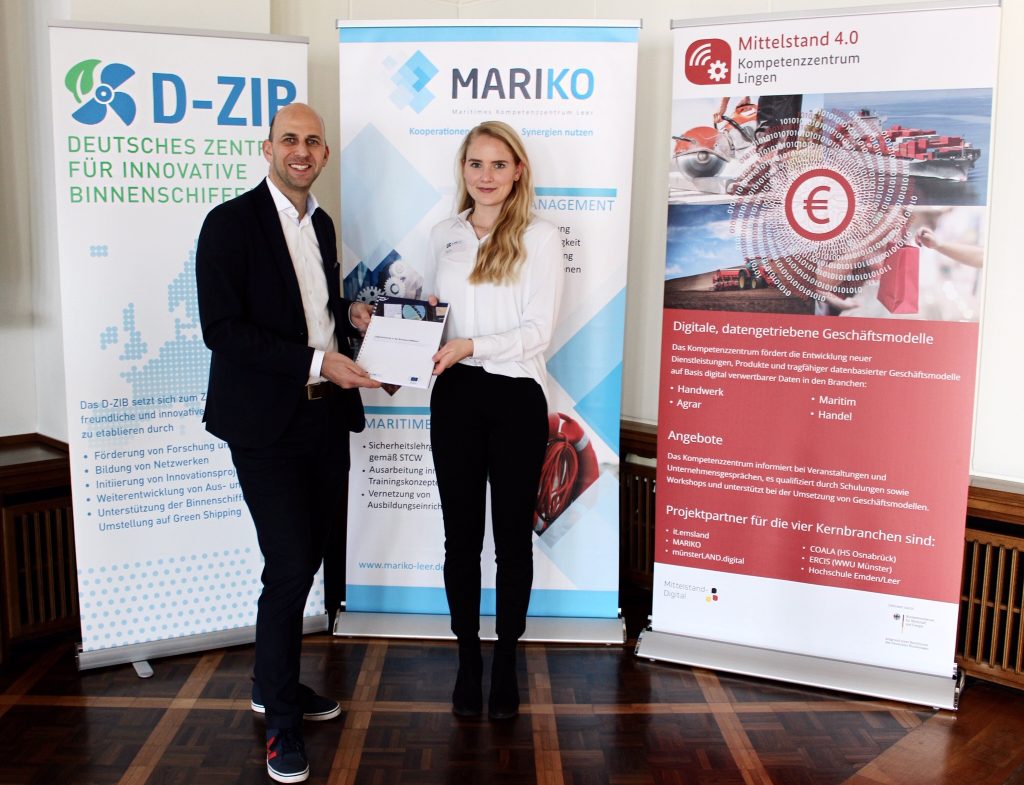Digital business models in inland waterborne transport
Published: February 26, 2019
February 25, 2019. Source: Mariko GmbH. www.mariko-leer.de
Duisburg. At the invitation of MARIKO GmbH, the event “Digital Business Models of Inland Navigation – Final Presentation of the Study Digitisation in Inland Navigation” took place on 25 February in the Niederrheinische Industrie- und Handelskammer Duisburg-Wesel-Kleve with more than 50 participants from the inland navigation. This event was organised as part of the projects D-ZIB “German Center for Innovative Inland Navigation” and “Mittelstand 4.0 Competence Center Lingen”.
Also due to digitisation, the transport sector is facing profound changes. The competitive landscape is becoming more heterogeneous and market entry barriers are falling. As a result, new competitors enter the market and increase the pressure of innovation on established players in the transport and logistics markets. This also applies in particular to inland navigation, which is only conditionally considered as a driver of innovation.
The aim of the study, which was developed by the company HTC – Hanseatic Transport Consultancy from Hamburg, was to examine the current status, the possible needs, the instruments given or to be developed, the training needs, the market potentials and conditions for digitisation in inland navigation. The focus was on the prospects of digital business models.
In order to ensure the competitiveness of the waterway system in the medium to long term, the study recommends a much more intensive orientation of IWT to digital trends. In order to be able to react more flexibly and faster to new customer requirements and thus remain competitive, a (further) development of the digital “mindset” of the actors and the use of technologies is indispensable.
During a panel discussion with industry experts moderated by Hans-Wilhelm Dünner (Schifffahrt und Technik SuT Verlags GmbH) various implementation perspectives of digital business models in inland navigation were discussed.
“The data are the gold of digitisation”, says Prof. Dr. med. Ninnemann. An openness of the actors to share the necessary data is essential for the advancing digitisation, he said, underscoring the importance of the “digital mindset”.
Based on the findings of the study and the discussion, approaches and innovation projects will be developed to support and strengthen the industry with regard to digital action requirements.
The study and the presentation of the event are available for download on the MARIKO homepage.
The feasibility study and the implementation of the event was funded by the European Commission within the framework of the project “German Center for Innovative Inland Navigation” (D-ZIB).
Support was provided by the project Mittelstand 4.0-Kompetenzzentrum Lingen.
